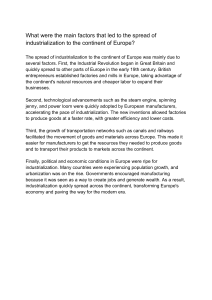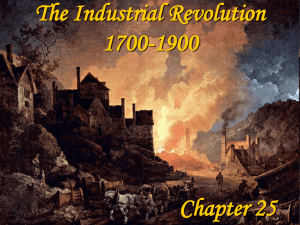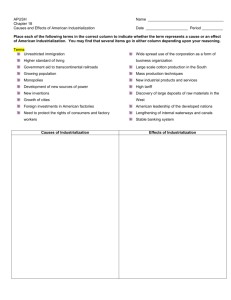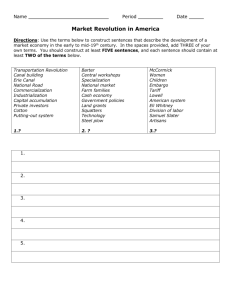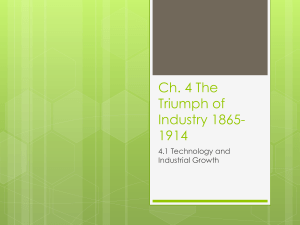1. Which was not discussed in the textbook as... (C) warned against the dangers of Prussian
advertisement
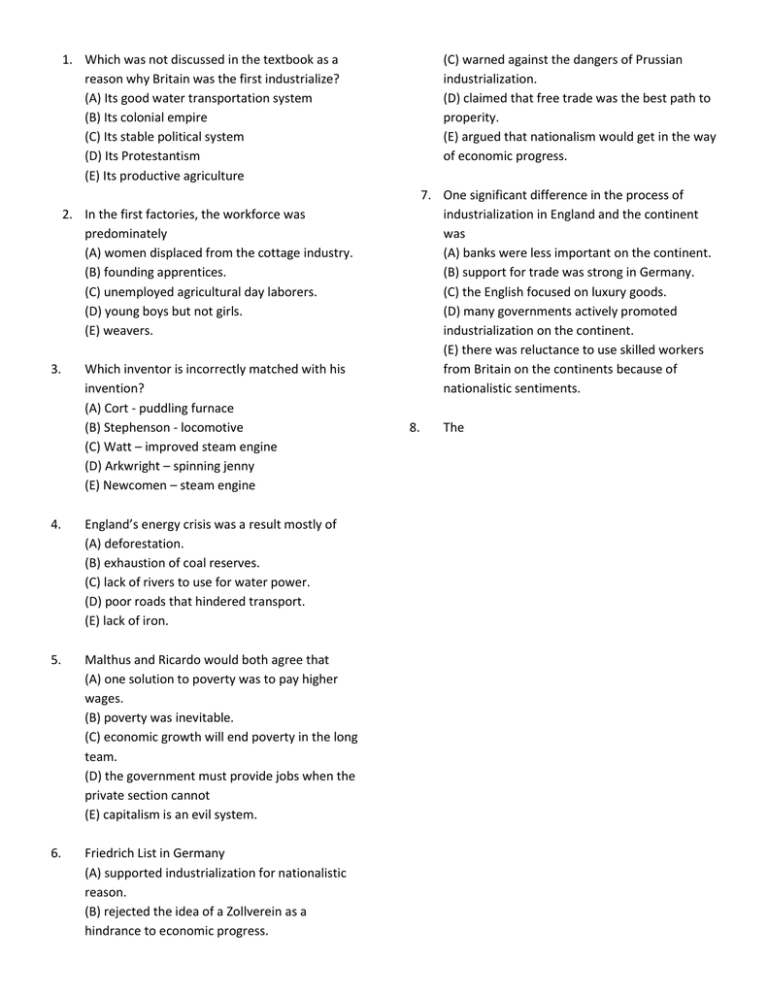
1. Which was not discussed in the textbook as a reason why Britain was the first industrialize? (A) Its good water transportation system (B) Its colonial empire (C) Its stable political system (D) Its Protestantism (E) Its productive agriculture (C) warned against the dangers of Prussian industrialization. (D) claimed that free trade was the best path to properity. (E) argued that nationalism would get in the way of economic progress. 7. One significant difference in the process of industrialization in England and the continent was (A) banks were less important on the continent. (B) support for trade was strong in Germany. (C) the English focused on luxury goods. (D) many governments actively promoted industrialization on the continent. (E) there was reluctance to use skilled workers from Britain on the continents because of nationalistic sentiments. 2. In the first factories, the workforce was predominately (A) women displaced from the cottage industry. (B) founding apprentices. (C) unemployed agricultural day laborers. (D) young boys but not girls. (E) weavers. 3. Which inventor is incorrectly matched with his invention? (A) Cort - puddling furnace (B) Stephenson - locomotive (C) Watt – improved steam engine (D) Arkwright – spinning jenny (E) Newcomen – steam engine 4. England’s energy crisis was a result mostly of (A) deforestation. (B) exhaustion of coal reserves. (C) lack of rivers to use for water power. (D) poor roads that hindered transport. (E) lack of iron. 5. Malthus and Ricardo would both agree that (A) one solution to poverty was to pay higher wages. (B) poverty was inevitable. (C) economic growth will end poverty in the long team. (D) the government must provide jobs when the private section cannot (E) capitalism is an evil system. 6. Friedrich List in Germany (A) supported industrialization for nationalistic reason. (B) rejected the idea of a Zollverein as a hindrance to economic progress. 8. The
